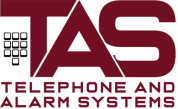Navigating the modern phone system
A guide for small businesses
The traditional landline phone system is a relic of the past for many businesses. Today, small businesses have a wealth of options when it comes to communication solutions, and navigating these options can be overwhelming. This article provides a clear picture of the key terms and considerations for choosing the best phone system for your small business.
Telephone Systems vs. VOIP Phones:
Telephone Systems: These refer to the entire infrastructure that allows businesses to make and receive calls. Traditional landline systems rely on a physical network of wires, while modern systems can be cloud-based.
VOIP Phones (Voice Over Internet Protocol): These phones utilize the internet to transmit voice calls instead of traditional phone lines. VOIP phone service is often part of a broader cloud-based phone system.
Understanding Phone System Options:
VOIP Phone Service: This service allows businesses to make and receive calls over the internet using VOIP phones or even softphones (software applications on computers).
Phone Systems for Small Business: These systems are designed specifically for the needs of smaller companies, offering features like call forwarding, voicemail, and auto attendants at an affordable price point.
Choosing the Best Option:
Cloud-Based Phone System: These systems offer flexibility, scalability, and lower upfront costs compared to traditional systems. They are a popular choice for small businesses due to their ease of use and remote work capabilities.
VOIP Phone for Business: VOIP phones are ideal for businesses that want to leverage the internet for cost-effective calling and integrate communication features.
IP Phone Service: This term is synonymous with VOIP phone service, both utilizing the internet for voice calls.
Additional Considerations:
Cloud Phone: This is another term for a cloud-based phone system.
Business Phones: These are physical phones designed for use with business phone systems, offering features like call hold, transfer, and conferencing.
VOIP Phone Service for Small Business: This service is specifically designed to cater to the needs and budgets of smaller companies.
Virtual Phone System: This is another term for a cloud-based phone system, emphasizing its location-independent nature.
Choosing the Best VOIP Phones for Your Small Business:
While this article focuses on information, consider researching specific VOIP phone models that offer features and functionalities relevant to your business size and needs.
Conclusion:
By understanding the different types of phone systems and the associated terms, small businesses can make informed decisions when choosing the communication solution that best suits their needs and budget. Remember, cloud-based systems with VOIP technology offer several advantages for modern businesses, including flexibility, scalability, and cost-effectiveness.

